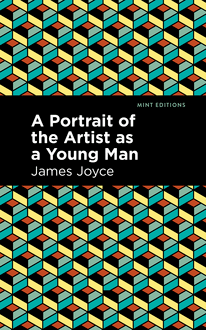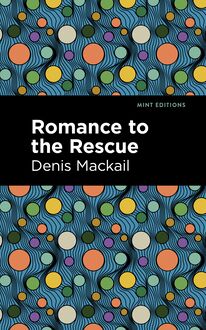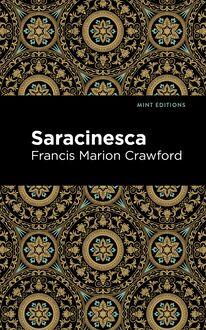-
 Univers
Univers
-
 Ebooks
Ebooks
-
 Livres audio
Livres audio
-
 Presse
Presse
-
 Podcasts
Podcasts
-
 BD
BD
-
 Documents
Documents
-
- Cours
- Révisions
- Ressources pédagogiques
- Sciences de l’éducation
- Manuels scolaires
- Langues
- Travaux de classe
- Annales de BEP
- Etudes supérieures
- Maternelle et primaire
- Fiches de lecture
- Orientation scolaire
- Méthodologie
- Corrigés de devoir
- Annales d’examens et concours
- Annales du bac
- Annales du brevet
- Rapports de stage
La lecture à portée de main
Vous pourrez modifier la taille du texte de cet ouvrage
Découvre YouScribe en t'inscrivant gratuitement
Je m'inscrisDécouvre YouScribe en t'inscrivant gratuitement
Je m'inscrisEn savoir plus
Vous pourrez modifier la taille du texte de cet ouvrage
En savoir plus

Description
Romance to the Rescue (1921) is a novel by Denis Mackail. Recognized in his time as a leading writer of popular fiction, Mackail was a gifted stylist with a keen sense of social convention and a deep commitment to developing his diverse casts of characters. Frequently funny, Mackail’s work is a pleasure to read and deserves renewed interest from the public. The past few years have been hard on David Lawrence. Having lost his mother to illness, he is preparing to go off to college at Oxford while living up to the expectations of his father Martin, a respected academic. While out to dinner with his father in London, David meets the mysterious Mrs. Cartwright, a charming older woman who seems to have a history with Dr. Lawrence. Encouraging him to pay a visit to her home, she bids them goodnight, leaving David to play it cool while conversing with his father. Not long after this brief meeting, David calls on Mrs. Cartwright to find her in the middle of a conversation with aspiring playwright John Ormroyd, who wishes to have his new production staged at the Thespian Theatre. Assuring him to remain confident in his work, Cartwright—whose husband Leo manages the Thespian—welcomes David into her drawing room, where she introduces the two men and bids farewell to John. As the story unfolds, passion and a secret from the past prove an entertaining concoction as men compete for the attention of a woman whose confidence and intelligence they foolishly underestimate. With a beautifully designed cover and professionally typeset manuscript, this edition of Denis Mackail’s Romance to the Rescue is a classic of English literature reimagined for modern readers.
Sujets
Informations
| Publié par | Mint Editions |
| Date de parution | 03 août 2021 |
| Nombre de lectures | 0 |
| EAN13 | 9781513288055 |
| Langue | English |
| Poids de l'ouvrage | 2 Mo |
Informations légales : prix de location à la page 0,0500€. Cette information est donnée uniquement à titre indicatif conformément à la législation en vigueur.
Extrait
Romance to the Rescue
Denis Mackail
Romance to the Rescue was first published in 1921.
This edition published by Mint Editions 2021.
ISBN 9781513283036 | E-ISBN 9781513288055
Published by Mint Editions®
minteditionbooks.com
Publishing Director: Jennifer Newens
Design & Production: Rachel Lopez Metzger
Project Manager: Micaela Clark
Typesetting: Westchester Publishing Services
C ONTENTS
I. M RS . C ARTWRIGHT ’ S G REAT C HARM
II. P RESENTING L EO C ARTWRIGHT
III. T HREE L ETTERS
IV. T HE P LOTS T HICKEN
V. A M ATINÉE AT THE T HESPIAN
VI. T WO M EETINGS
VII. A F IRST N IGHT AT THE T HESPIAN
VIII. O DD M AN O UT
(All the characters in this story are entirely imaginary)
I
M RS . C ARTWRIGHT ’ S G REAT C HARM
I
A L ONDON SQUARE . N OT ONE of the historical squares of Mayfair, nor yet containing a sufficient percentage of professional brass plates to be identified at once as north of Oxford Street, but a good enough square for all that. Quiet and withdrawn from omnibus routes. The houses are small but neat. Where they are plaster-fronted, the paint is of recent date; where they are brick-fronted, the pointing has clearly not been neglected. For there is enough external variation in this square to give that suggestive, though often misleading clue to the character of its inhabitants, which to the speculative mind forms one of the chief attractions of a walk through the more comfortable portions of London.
Number 15, for instance, has built itself out a little bow window on the ground floor, Number 9 has attached to itself a diminutive glass porch, Number 24 has grown an extra top story. Number 18 moves with, if not in advance of the times; its dining-room curtains suggest the Ballet, and the vivid colour of its front door cannot be pleasing to Number 17, which clings to the traditions of the nineteenth century, has a bead blind in its fanlight and the only non-electric bell left in the square. Other trifling eccentricities and methods of self-expression may be noted in the remaining houses; scarcely one but has its own idea of knocker or steps or window-box.
At Number 35, however, you pause. Complete absence of individuality here fixes your attention as surely as the presence of Royalty in a photographic group. There have been no accretions to the fa ç ade of Number 35 during the hundred-odd years of its life. On this Sunday afternoon in December the street lamp reveals the same reserved, discreet, and gentleman-like exterior that it has shone on ever since its erection. There is a glow of light from the edges of the windows on the first floor, and at this there has been gazing for the last five minutes from a position by the square railings one of the principal characters in the story.
Do you scent romance here already? The resemblance to Act II, Scene 2 of “Romeo and Juliet,” it must be admitted, exists; but with more than all the difference between London in December and Verona in summertime. For it is now a Sunday afternoon, and no commentator has yet suggested that the balcony scene was intended to take place at such a time as this. The aroma of romance will, however, always cling to the episode of the man gazing upwards at the lighted window. This is not Shakespeare’s fault; he merely used an axiomatic truth to strengthen a stage situation, and sentiment has responded to this scene since the invention of the first window.
Romeo’s modern representative is called David Lawrence. He cannot, by the look of him, be more than nineteen, and it seems quite possible that he may be less. He is wearing a dark overcoat and a silk hat, and carries a neatly rolled umbrella. He would like to put the umbrella up and shield the silk hat as far as possible from the rain, which is everywhere condensing in sooty trickles. And, if it comes to that, he would like to cross the road and ring the bell at Number 35, which, having been invited by the occupier to call on any Sunday, he has every right to do. But inaction and indecision hold him in their grip. To tell the truth it is the lighted window which has atrophied his faculties in this regrettable manner. Of course, when he had been introduced to her nearly two months ago, Mrs. Cartwright had undoubtedly said, “You must come and see me any Sunday that you are in London,” and at the time she had certainly appeared to mean what she said. Moreover, in applying for a night’s leave from Oxford on the ostensible grounds of seeing his father off to Switzerland, he had certainly had in his mind all the time the possibility of making this call. But now that he was apparently on the verge of bringing it off, it would have given him greater courage, in presenting himself at the front door, if there had been more uncertainty as to his hostess being at home. He ought never to have crossed the road for the purpose of looking up at her windows. It would have been far better to have made a dash straight up the three steps and have rung the bell there and then. If she had been in, well and good. But if not, there would have been certain advantages in leaving his card and escaping at once. It would have shown, for instance, whether she really did want to see him, for it would have given her the opportunity of narrowing down her original invitation to a more definite point. It might have shown, also, whether she really did remember him at all.
He shuddered slightly at the thought of the alternative possibility, and for the thousandth time ran over in his mind the circumstances attendant on his first meeting with Mrs. Cartwright.
It was so strange that the actual introduction should have been made by his father. The always shy and reserved Dr. Lawrence, both these characteristics accentuated since his wife’s death, had been making one of his periodical attempts to get to know his only son. It is difficult to say whether, as a rule, parent or offspring disliked these attempts more. David had come to recognise the premonitory symptoms with horrible certainty, and knew every time that, until the climax was passed, there must be days of forced emotions, regretted confidences, and nervous strain. He wondered sometimes whether his father looked forward to the inevitable ending with any less longing than he did himself.
At any rate the climax of this particular rapprochement was to take the form of dinner and a theatre before David’s first departure for Oxford. Auguries of failure were by no means wanting. In his wish to please his son, Dr. Lawrence had taken seats for a musical play, not realising either that David had been to it by himself the week before, or that no entertainment of this description could possibly survive the destructive criticism of his own expression. The two had met by appointment in the hall of the restaurant, and David had instantly become aware that he was to incur public disgrace through the shape of his father’s collar; while the doctor’s upper lip had simultaneously lengthened at the sight of his son’s hair. When would he learn not to smother it in grease like that? Silently they handed their hats and coats to a flunkey (his knee-breeches and powdered hair warrant this antique expression) and silently they moved towards the entrance to the dining-room, and then, just as despair was settling on both, the interruption had come.
A woman rose from a wicker armchair and held out her hand.
“Hullo, Martin!” she said.
“Helen!”
The doctor stopped and took the outstretched hand. Shuffling uneasily in the background, David became aware of a strange phenomenon. Over the top of that disastrous collar his father’s neck had assumed an unusual tinge. If this was to be taken as indicating a similar discoloration in front, he must be actually blushing.
“Why, I thought—”
“Oh, no,” the woman broke in. “I’ve been back in London for some time. After all, why shouldn’t I?”
The arrival of a fresh group of diners made Dr. Lawrence move to one side, and the woman looked at David.
“And is this your son?” she asked.
Thinking it over afterwards, David realised that the pleasure he felt at this moment could largely be accounted for by the fact that she had not said, “Is this your boy?”
His father turned towards him. “I want to introduce you to Mrs. Cartwright,” he said.
He seemed to signal some kind of enquiry as he spoke her name, and she in turn gave a confirmatory movement with her head.
Further handshaking.
David thought he had never realised before what the epithet “bright” could mean when applied to the human eyes. At the same instant his manly prejudice against the use of scent disappeared once and for all.
Somehow or other he was in the background again.
“He’s very like,” said Mrs. Cartwright.
By the softening of his expression you might judge that Dr. Lawrence felt no incompleteness in this sentence.
“And you’ll come and see me now, won’t you?” Mrs. Cartwright went on, and for the first time in his life David heard his father tell a lie.
“I’m afraid I am just going abroad,” said the doctor. “I’m taking a working holiday at Davos.”
Now David knew, and his father knew he knew, that the Davos plan was not due for another six weeks at the earliest.
Mrs. Cartwright, bouncing gently off this refusal, turned again to David.
“Well, you must come and see me, then,” she said, “any Sunday that you are in London. Ah, I see my host,” she broke off. “I must go. Good-bye.”
She shook no hands this time, but moved quickly away. And then, with her back to the Lawrences, but still apparently addressing one of them, she added, “Don’t forget.”
Father and son continued their interrupted journey towards their table and took their seats in silence. A waiter came up with a menu. The doctor nodded comprehensively at its contents, and the service began. Reeling though he still was at the moment from the effects of his first meeting with that amazingly attractive woman, David yet noted his father’s action with interest and surprise. At previous
-
 Univers
Univers
-
 Ebooks
Ebooks
-
 Livres audio
Livres audio
-
 Presse
Presse
-
 Podcasts
Podcasts
-
 BD
BD
-
 Documents
Documents
-
Jeunesse
-
Littérature
-
Ressources professionnelles
-
Santé et bien-être
-
Savoirs
-
Education
-
Loisirs et hobbies
-
Art, musique et cinéma
-
Actualité et débat de société
-
Jeunesse
-
Littérature
-
Ressources professionnelles
-
Santé et bien-être
-
Savoirs
-
Education
-
Loisirs et hobbies
-
Art, musique et cinéma
-
Actualité et débat de société
-
Actualités
-
Lifestyle
-
Presse jeunesse
-
Presse professionnelle
-
Pratique
-
Presse sportive
-
Presse internationale
-
Culture & Médias
-
Action et Aventures
-
Science-fiction et Fantasy
-
Société
-
Jeunesse
-
Littérature
-
Ressources professionnelles
-
Santé et bien-être
-
Savoirs
-
Education
-
Loisirs et hobbies
-
Art, musique et cinéma
-
Actualité et débat de société
- Cours
- Révisions
- Ressources pédagogiques
- Sciences de l’éducation
- Manuels scolaires
- Langues
- Travaux de classe
- Annales de BEP
- Etudes supérieures
- Maternelle et primaire
- Fiches de lecture
- Orientation scolaire
- Méthodologie
- Corrigés de devoir
- Annales d’examens et concours
- Annales du bac
- Annales du brevet
- Rapports de stage




















